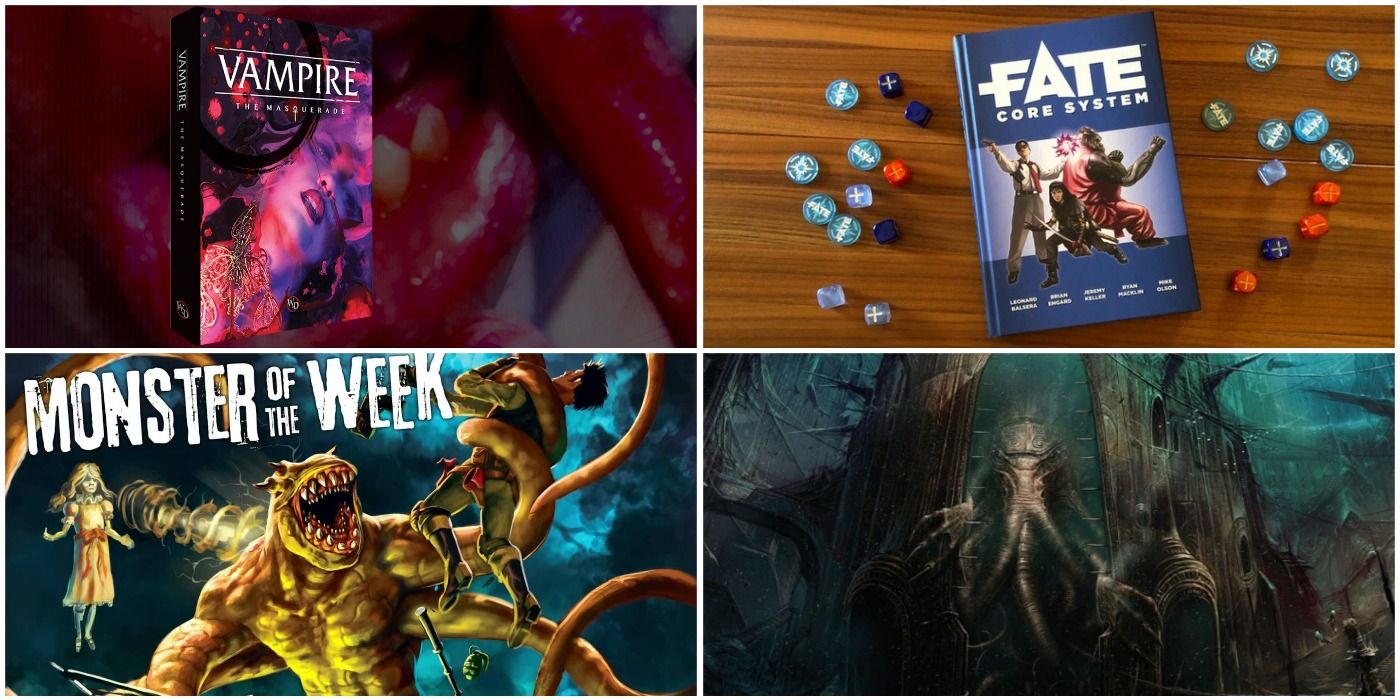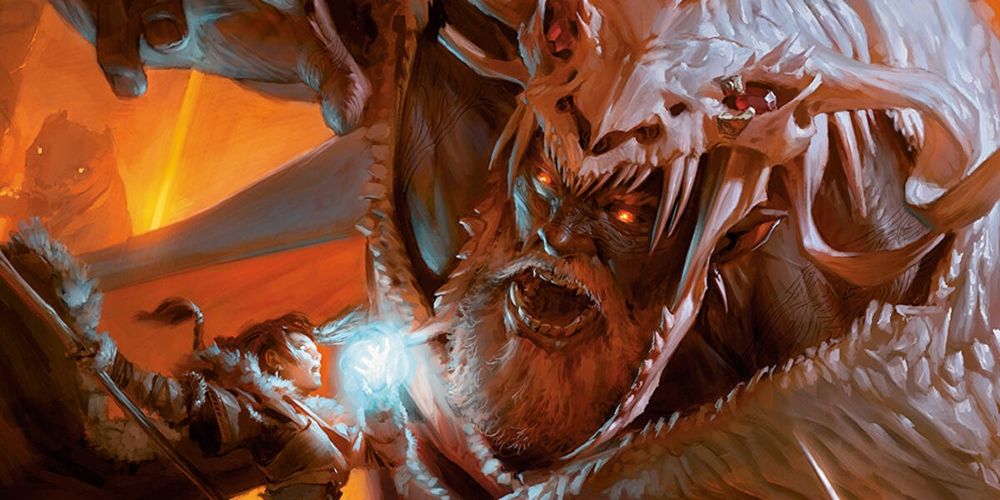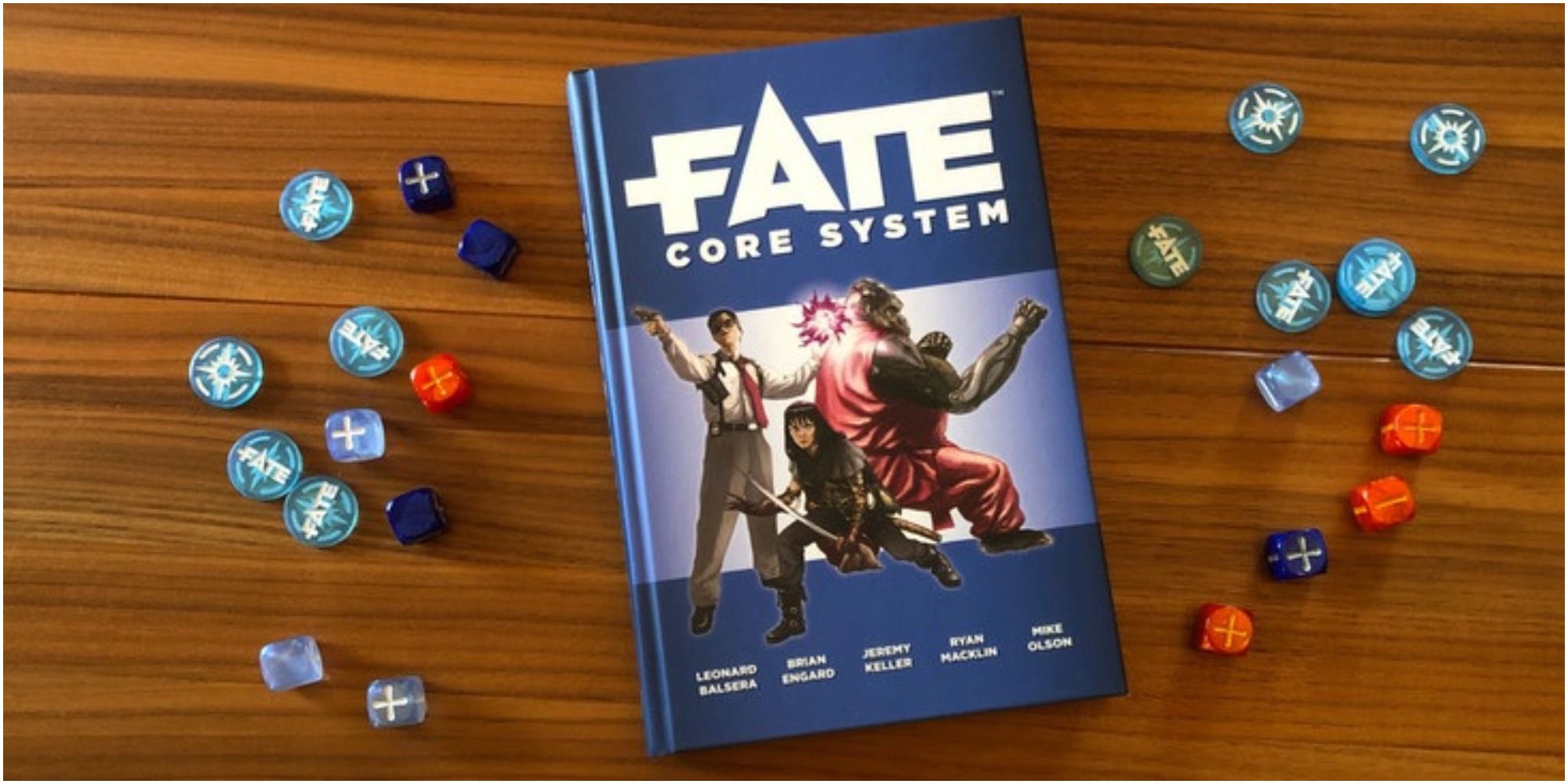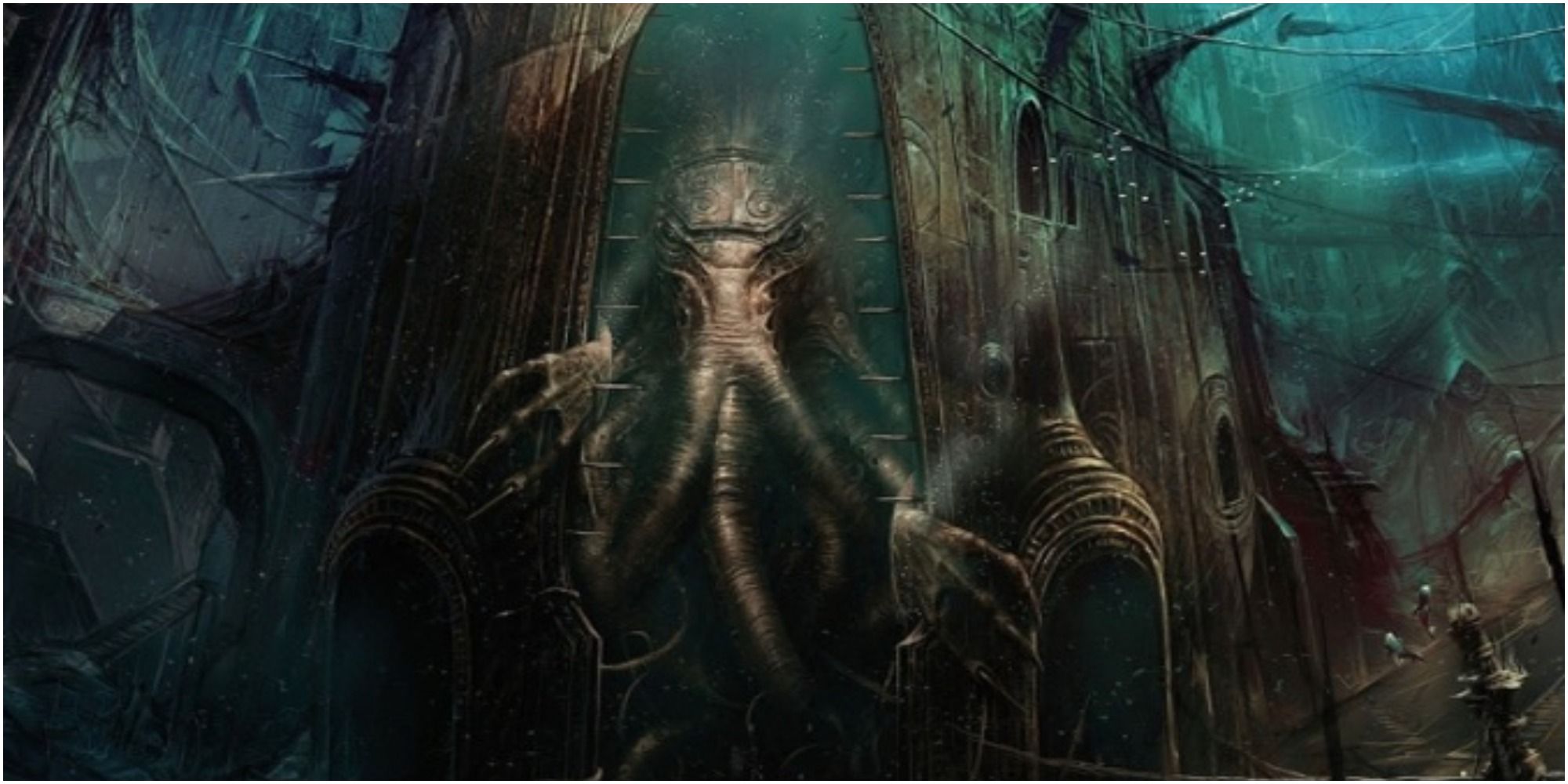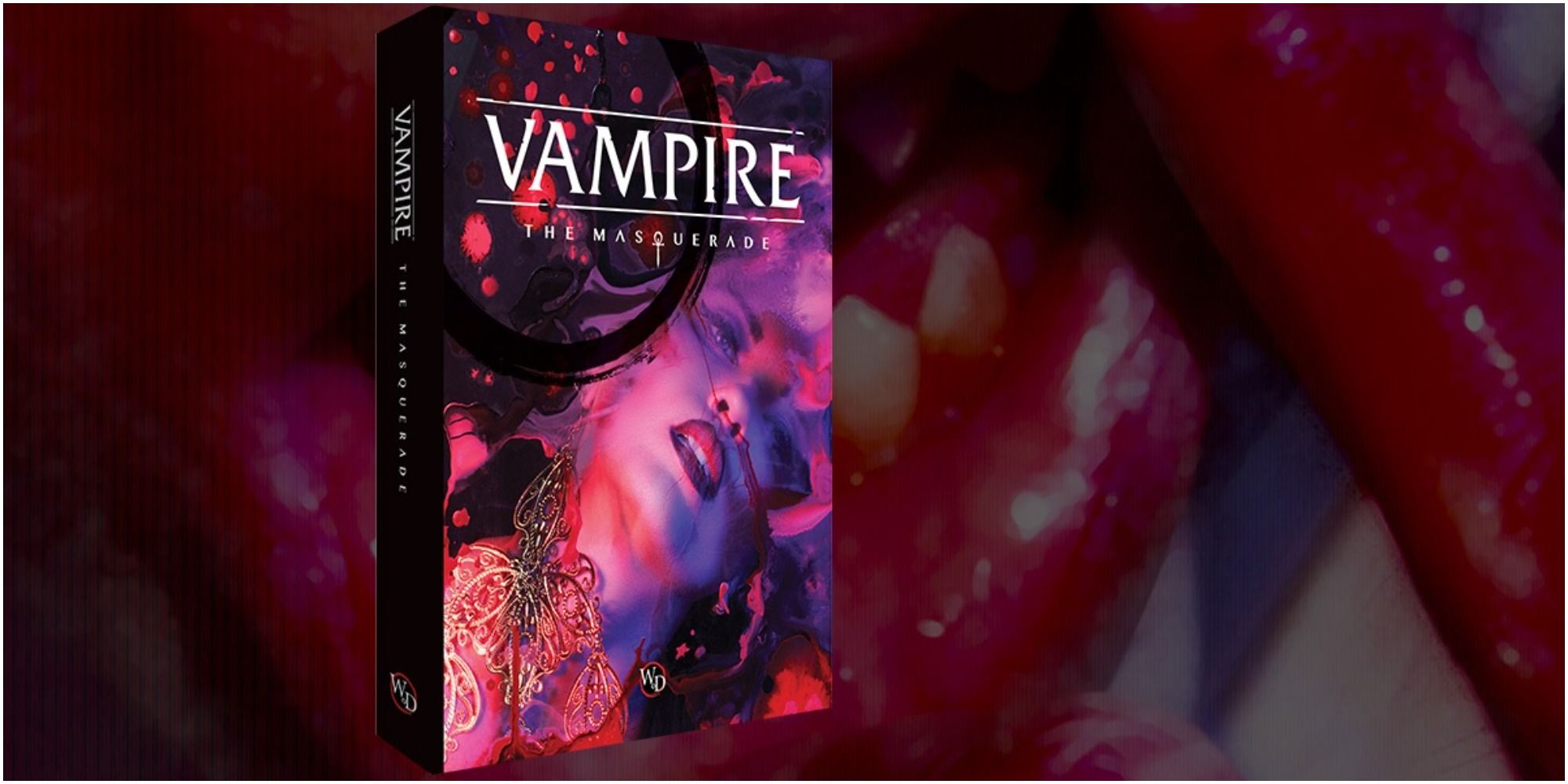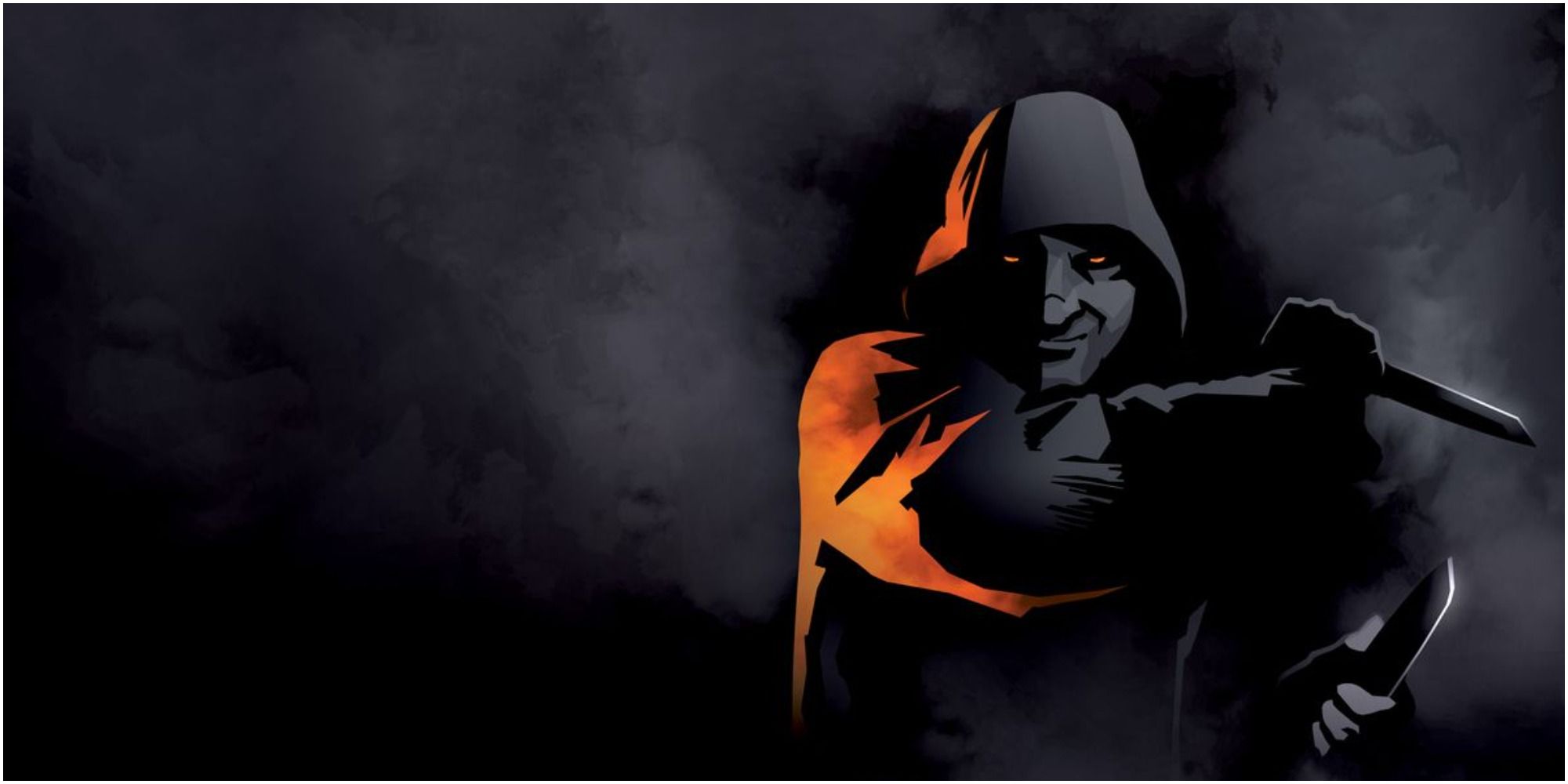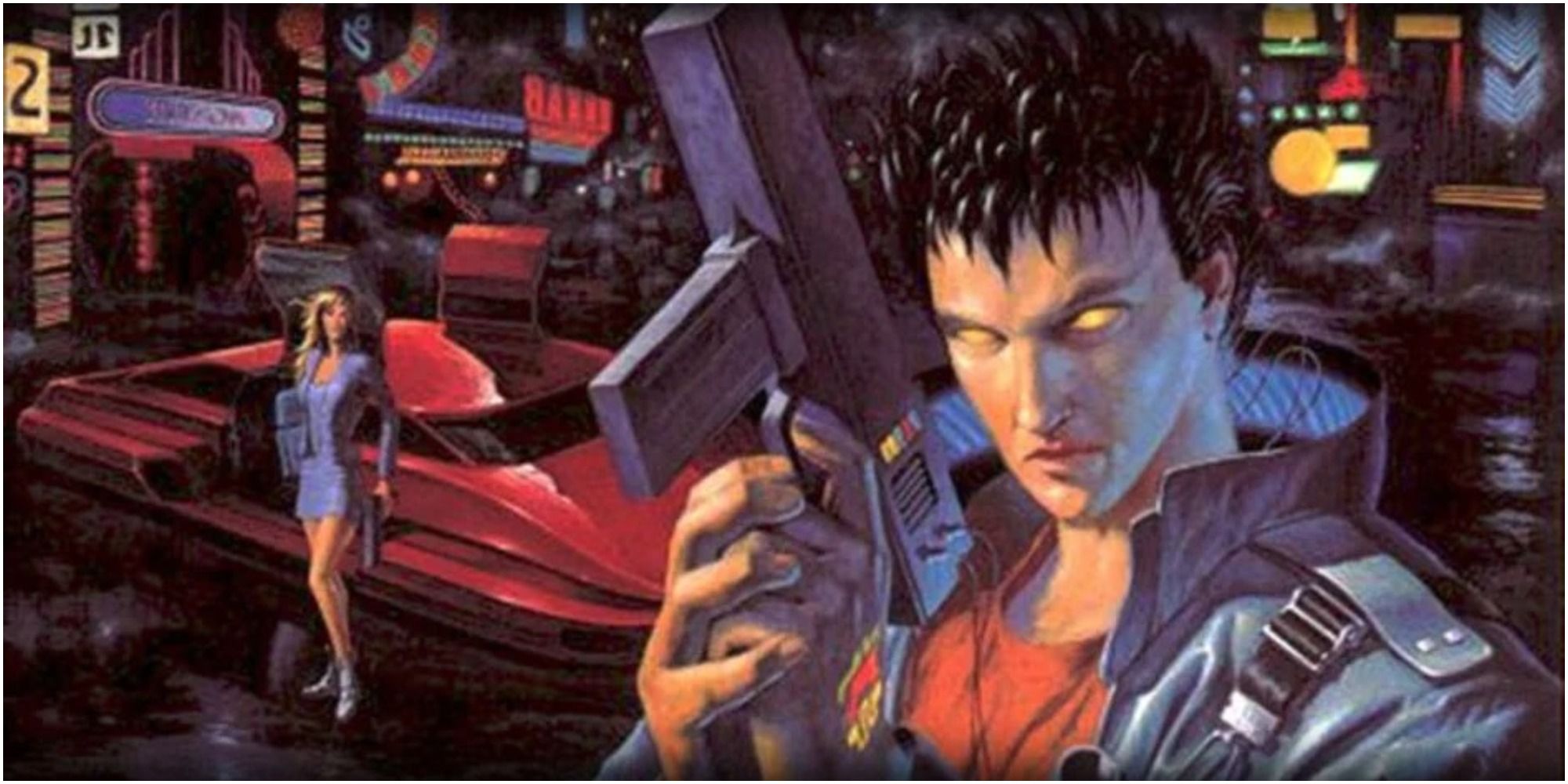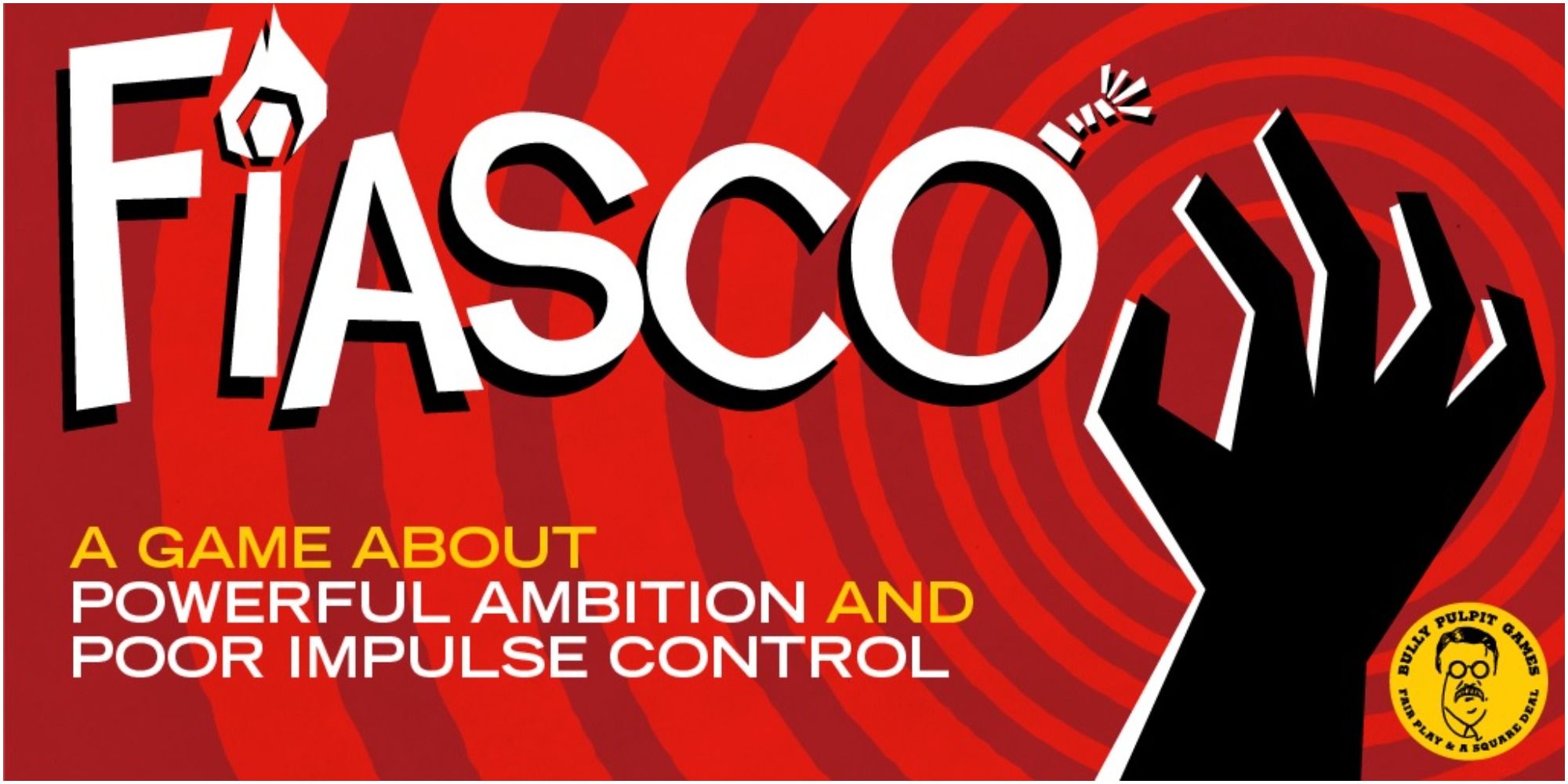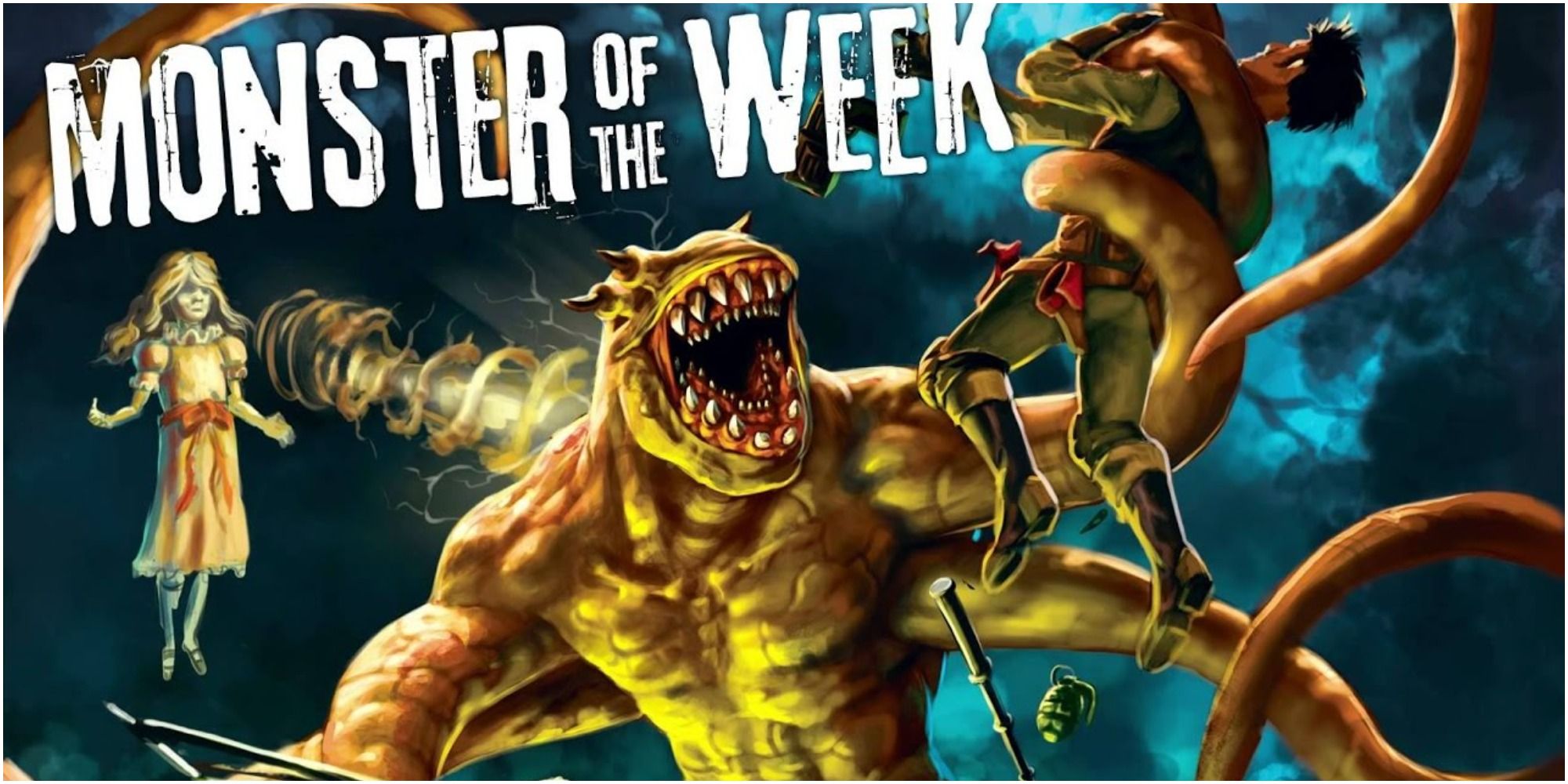As their popularity continues to grow, tabletop role-playing games are everywhere. Players can find games for any play style and genre if they know where to look, and many have chosen to create their own games as development has become more accessible.
Given the vast amount of them available, TTRPGs can be somewhat intimidating to get into. Many gamers don’t know where they should start, or if there’s a game out there that fits what they’re looking for. The easiest place to start is to assess what games have achieved and maintained a positive reputation within the community over time.
10 Dungeons And Dragons: A Titan Of The Genre
When TTRPGs get brought up in conversation, many people immediately default to thinking of Dungeons and Dragons Fifth Edition. However, this tabletop mainstay has experienced a renaissance in the past ten years, with actual-play shows like Critical Role and inclusion in mainstream TV like Stranger Things introducing a whole new generation to its dungeon delving adventures.
Though only a few core sourcebooks are needed to play, D&D has a vast abundance of content at its disposal, both officially licensed and homebrewed by fans across the globe.
9 FATE Core: Character-Driven With Unlimited Possibilities
The best element of the FATE Core system is that it can be adapted to nearly any setting. The base system works off of Aspects, or statements that describe the characters or the world around them. The Game Master can compel players to follow their aspects using FATE Points, which players can trade in to improve their rolls if needed.
By focusing the gameplay around parts of the characters’ personalities, FATE centers around narrative, whereas other games focus on combat. FATE has several settings and modules established and published that players can use, or they can also develop their own worlds to set FATE games in.
8 Call Of Cthulhu: Classic Eldritch Horror
Call of Cthulhu is the way to go for gamers whose table yearns for something a bit scarier. It adapts the aesthetics and mythologies of H.P. Lovecraft’s literary works to the tabletop setting with grace and ease. Players, called Investigators, face the supernatural as presented by the Keeper, their Game Master.
Though the game’s modules are based around Lovecraftian mythos, the core ruleset encourages using it for other styles, such as folk horror or Southern Gothic. In addition, Call of Cthulhu includes special rules for luck and monitoring player sanity as they weather the unspeakable terrors that lurk in the world’s dark places.
7 Vampire: The Masquerade: Gateway To World Of Darkness
Vampire: The Masquerade is the most well-known among the World of Darkness universe of games. Set in an alternate version of reality where supernatural beings go bump in the night, Vampire opens a window into the lives of the blood-drinking undead. These monsters, called Kindred in the game’s lore, must stand against rival factions and vampire hunters to make the most of their immortal condition and decide what they are or are not willing to do.
Gameplay tracks both the amount of blood a vampire has consumed recently and how much of their Humanity they still retain, resisting the Beast within that wants only to hunt and feed.
6 Blades In The Dark: Gritty, Criminal Escapades
For those players who want to play a more morally-grey campaign, but keep some of the fantastical elements that fantasy settings have to offer, they may wish to try out Blades in the Dark.
In this industrial-fantasy game, the players create a group of scoundrels trying to make it big in the criminal underbelly of a gritty fantasy city. Along their way, they could encounter strange technology, alchemical workings, or even the occult. Blades in the Dark even provides rules for gamers to play non-human entities like ghosts.
5 Cyberpunk: The TTRPG That Came Before The Game
Many gamers are unaware that the famous, or infamous, video game Cyberpunk 2077 was based on CD Projekt Red’s Cyberpunk TTRPGs. The most recent edition, Cyberpunk Red, builds on the previous editions’ lore about a dystopic alternate world ruled by megacorporations and powered by cybernetic enhancements.
Cyberpunk game allows players to explore complex topics like the relationship between humans and machines and the growing control that private companies have over public life. Any edition of Cyberpunk, whether old or new, is an excellent addition to a TTRPG enthusiast’s repertoire.
4 Fiasco: No Preparation, Collaborative Misadventures
An icon among GM-less TTRPGs, Fiasco is a collaborative storytelling game about plans going horribly wrong. At the start of the game, players work together to construct their characters and the world around them. All aspects of the adventure, including character relationships, obstacles, and the group’s goal, are decided as part of gameplay instead of being pre-developed by a module or Game Master.
Fiasco has four sections of play: Setup, Act One, Act Two, and Aftermath. Between Act One and Act Two is The Tilt, which is the event that throws the group’s carefully crafted plan into chaos.
3 Monsterhearts 2: The Monstrous Nature Of Adolescence
Though the Monsterhearts games are a comparatively new addition to the tabletop role-playing game world, they’ve already found themselves a place in gamers’ hearts and on their shelves.
Modeled after cult classics like Buffy the Vampire Slayer and The Craft, Monsterhearts 2’s system helps players tell coming-of-age stories through the lens of urban fantasy. Each player chooses a character archetype to build off of, and each archetype comes with a specific set of moves and abilities that they can use to navigate their complicated world.
2 Starfinder: A Well-Known System, But In Space!
Starfinder takes the well-known fantasy TTRPG Pathfinder’s established mechanics and elements up above the stratosphere. This combination of sci-fi and fantasy integrates advanced technology, space travel, and futuristic character classes into Pathfinder’s pre-existing world of magic and mystery.
Players can pilot a starship and explore distant planets through Starfinder’s familiar d20 system. In a world of TTRPGs that lean towards the fantasy genre, Starfinder applies a science-fiction coat of paint to a familiar fantastical world, making the transition simple and comfortable for any hesitant players.
1 Monster Of The Week: Adaptable Urban Fantasy
Though Monster of the Week uses pre-set character archetypes, they’re easily customizable to various settings. Players could hunt monsters across the highways of the United States, vanquish historical horrors in an era of the past, or enjoy many other adventures through Monster of the Week’s Powered by the Apocalypse system.
Players use two six-sided dice to determine the outcome of attempted actions and use their chosen moves in order to investigate and solve the mysteries their Game Master presents. Inspired by monster-hunting popular media, Monster of the Week lets players live out their fantasies of defeating evil creatures.
